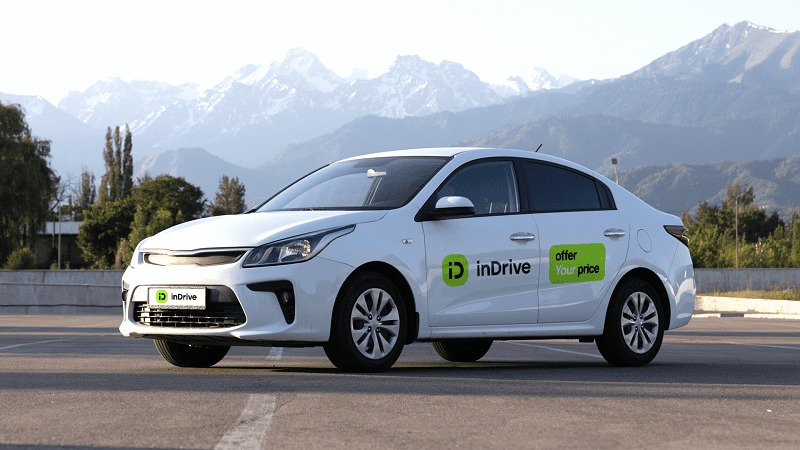Auto
Why Cars Catch Fire, How To Prevent Such


By Igono Joseph Okeme
INTRODUCTION
It is almost common to see vehicles going up in flames in Nigeria. It is really a helpless sight to behold. The occupants, if lucky, escape the raging infernos and some, who are not too really lucky, get killed as a result of various degrees of burns sustained in such incidents.
On one instance, when I was returning from one of the holy ghost services at the Redemption Camp early in the morning some months ago (I’m not by all means trying to be a religious PR here), I suddenly saw a Corolla ’08 in flames on the road. The owner of the car was nowhere to be found. Maybe he had gone to look for ‘water’ to fight the fire. Note of caution please; don’t use ordinary water to fight an inferno. That accelerates the fire because fuel is denser than water.
That day, before 8:00am, the car was totally burnt to ashes.
You could imagine environmental, economic, and psychological impacts that incident must have caused the owner, and the environment.
What would have happened, if other adjacent cars caught fire? Imagine the ripple effect of that for a minute.
Incidences like these occur in Lagos, especially areas where vehicles are at close proximity with each other.
WHAT CAUSES SUCH CASES?
For a fire to start, there must be the presence of AIR, FUEL, and a HEAT SOURCE.
There are lots of causes of car fire incidents.
The most common ones are:
- Fuel (petrol). Leaks along fuel lines pose a dangerous threat to safety here.
Cars with a leaky injector nozzle system seals can allow tiny droplets of fuel drop on hot spots on an engine, or exhaust system, thereby leading to a fire. These seals are usually weak, when they are exposed to tremendous heat from the engine, and the atmospheric temperature of the environment. Normally at 60,000miles, such seals lose their sealing properties, and create fire risks.
- Electrical issues. When you open up the hood of your car, you see bunch of wire harnesses, connectors, etc, acting as a conduit for the flow of current to various components of the car.
If any of these wiring harnesses has a SHORT CIRCUITS problem, the flow of current would be limited, at the load, leading to the current traveling to an undesignated route. This route could be the body of the car, which acts as a ground. This undesired current flow that has found a new path, could trigger a fire. If for instance there’s already a source of fuel provided it by a leaky fuel system component. Bu!!! you hear. Suddenly there’s a fire raging.
- Exhaust system. All internal combustion engine applications work through lots of friction and stress in order to produce the motion for the movement you and I enjoy when we drive our SUVs, or in a “danfo bus”. But have you ever thought that those applications could go through temperatures of up to 2000C? With this kind of extreme temperature, coupled with outside temperature, that might be in the range of 30-40C, what do you expect your engine to do? A clogged catalytic converter would generate even more extreme temperatures that could instantly lead to a fire. Even car owners look for an escape route when faced with the heat from traffic logjam on the road and work stress. You escape that by putting on your car’s AC system to take away that heat in exchange for a clean cool air. Isn’t it? OK. Same thing happens to your engine. This extreme temperature is exited through the exhaust system of the car, and straight to the environment.
Now, how does that exhaust system looks like?
Fuel system routed close to exhaust systems are at risks of causing car fires.
Manufacturers, over the years, have routed fuel lines away from exhaust systems, and even shielded the exhaust systems with shield materials to protect excess heat from setting off fires. Some fuel system lines also use heat shields, to help reduce the risks of fires.
- Oil spills. Engine oils and automatic transmission fluids spill on engine components like the transmission system, cylinder heads, exhaust system manifold, rotating driven solid shafts, and on engine chassis, etc can cause car fires.
The reason being as these spills gradually builds up into a sludge on those components, they trap dirt made of combustibles, making them susceptible to generating heat and smoke, and then results into a fire while driving.
HOW TO PREVENT CAR FIRES
The most effective way to prevent car fires are:
- Carry out preventive maintenance checks on all fuel, exhaust, and electrical systems at every oil change. These checks would help you determine their integrity, and eventually point out potential problem areas before they occur.
- Ensure all maintenance/repairs carried out on the car’s fire prone systems, such as the fuel, exhaust, and electrical systems are properly done.
Proper laid down procedures regarding repairs and safety must be strictly adhered to. Do not allow your mechanics to tell you, “Oga. It doesn’t matter to put on an exhaust heat shield, or let’s manage the fuel line clips. It won’t do anything”. If you currently have a mechanic like that as your mechanic, you have to run brother!
- Carry out steam washing of the engine bay monthly, or so. That would reduce the accumulation of oil spill build up on the engine area.
If you’re scared of allowing your engine to be steam washed, you could hand wash it.
***use solvents such as petrol, or diesel fuel, to help remove oil spills, and apply a soapy solution to wash the affected parts mildly.
NB: Ensure the cars ECU (commonly called brainbox), and ignition control modules are protected from water sprays because they could foul the system and cause you tremendous money fixing them.
WHAT DO YOU DO WHEN YOUR CAR CATCHES FIRE
Well, I know some of us are so religious when it comes to predictive maintenance and stuffs like that. But I think it is cool for you to have some tips on your hand just in case, perhaps, your neighbour’s car catches fire, this is what you should do.
- If you notice smoke billowing out of the car while driving, pull over off the road to a safe place and park.
Don’t open the hood because there’s the risk the fire could spread further because opening up the hood creates more oxygen intake for the car and that accelerates the fire.
- Get out of the car as soon as possible If you can.
Do not attempt to return back to the car to rescue your laptop, galaxy note 7, and even your jewellery. I think it is better you’re alive than die in that fire; doesn’t make sense to me though. But maybe that’s not my business.
- Disconnect the power source if you can. Some cars like Benz, BMW, Renaults don’t have their batteries located at the front. They’re at the rear or at the front passenger seat. Be bold enough to disconnect the positive terminal in order to cut the current supply to the electrical systems.
- If you’re courageous enough, fight the fight with a recommended fire extinguisher class type recommended by your safety agency (FRSC); it could be a class B, or C, depending on the specifications recommended.
- Call the fire service immediately if you’ve got no guts to stand against a fire.
CONCLUSION
Car inferno don’t just start like that.
And even if they do, take preventive maintenance checks very seriously. Try monitoring the kinds of jobs and the safety/repair procedures your car mechanic employ fixing your precious car. If you don’t, someday, you might just laugh-cry.
Hope this piece has enlightened someone on this platform.
Auto
inDrive Ranks Second in Ride-Hailing App Downloads Globally

By Modupe Gbadeyanka
A global mobility and urban services platform, inDrive, for the fourth consecutive year, has emerged as second in ride-hailing app downloads in the world.
In its latest report, a leading market intelligence firm, Sensor Tower, also disclosed that the company ranked fourth globally in the travel category for downloads, up from fifth place in 2024, reflecting growing engagement as it continues its transition into a super app.
It was also revealed that inDrive was ranked number one in the travel category by downloads in nine countries, with newcomers to the list including Peru and Pakistan, and placed among the top three most downloaded travel apps in 22 countries.
The chief executive of inDrive, Mr Arsen Tomsky, while commenting on these feats and others, said the continued rise underscores a broader shift toward multi-service platforms that deliver everyday value while remaining closely aligned with local market needs and user expectations.
“Maintaining our position as the world’s second most downloaded ride-hailing app for a fourth consecutive year is a powerful validation of the value inDrive delivers to its users every day.
“This recognition reflects the trust people place in our platform and the continued dedication of our global team.
“As inDrive evolves into a super app, we remain focused on our core principles of fairness, transparency, and user choice, while expanding access to services that make a meaningful difference in people’s daily lives,” Mr Tomsky said.
The latest report highlights that super app ecosystems are becoming a key growth driver for the ride-hailing industry, particularly in emerging markets where users are engaging more frequently and across a broader range of use cases.
The inDrive app – defined by its peer-to-peer pricing model that allows drivers and riders to agree on a fair price mutually – has now been downloaded over 400 million times since its launch. Available in 1,065 cities worldwide, it has facilitated more than 8 billion transactions.
The platform operates across 48 countries, driven by strong global adoption, including growing momentum across Africa and continued growth in Nigeria.
In 2025, inDrive accelerated its transition into a super app, expanding beyond its core ride-hailing offering to offer additional services, including intercity transportation, courier, grocery delivery, and financial services.
By expanding its offering and meeting more of its users’ daily needs, inDrive is driving deeper and more frequent user engagement – an approach that underpins its continued global momentum.
Technology under the hood, including AI and advanced analytics, plays a significant role in supporting this evolution by enabling greater personalization and more seamless user experiences.
From using machine learning to fix mapping gaps and deliver more accurate ETAs, to predictive analytics that anticipate user needs and personalize service offerings, these capabilities drive innovation. In contrast, ensuring users retain complete control over pricing decisions is consistent with inDrive’s commitment to fairness through choice.
Auto
GoCab Receive $45m to Scale Ethical Mobility Financing Platform

By Dipo Olowookere
A funding package of up to $45 million has been secured by a mobility fintech firm, GoCab, to scale its ethical mobility financing platform across emerging markets.
A statement made available to Business Post disclosed that the funds comprise $15 million equity and $30 million debt, with the equity round co-led by E3 Capital and Janngo Capital. Others involved in the transactions were KawiSafi Ventures and Cur8 Capital.
GoCab operates a drive-to-own mobility fintech model that provides credit to gig-economy workers to buy their own car, bike and others in emerging markets.
It offers vehicles in drive-to-own programmes, mobile phone BNPL, motorbike financing for delivery couriers, and other value-added services through a single digital platform powered by proprietary technology.
With this financing support, GoCab plans to expand its operations and fleet, aiming for 10,000 active vehicles and $100 million in annual recurring revenue within the next 24 months.
Across five markets, GoCab now generates over $17 million in Annual Recurring Revenue (ARR) after just 18 months of operations and is on target to reach $50 million by end of 2026 and $100 million in 2027.
The company was established in 2024 by Mr Azamat Sultan and Mr Hendrick Ketchemen to address the limited access to ethical financing and vehicle ownership for gig-economy workers in Africa.
By combining mobility, technology, and inclusive finance, the organization enables drivers and delivery couriers to generate stable income while progressively gaining ownership of their vehicles.
By 2025, GoCab had taken a leading position in several African markets, supporting thousands of drivers and contributing to cleaner, more sustainable urban mobility systems.
“Transforming lives and improving the daily reality of thousands of families is the mission we have set for ourselves. We believe that capital can and must become a powerful force for transformation across Africa and emerging markets,” Mr Ketchemen said.
His counterpart, Mr Sultan, disclosed that, “For us, GoCab is about restoring dignity and opportunity through ownership.
“Across Africa, millions of people are locked out of both mobility and finance. We saw how capital was flowing everywhere except to the people who actually needed it to work.
“This round allows us to scale responsibly expanding access to fair, ethical financing while accelerating the transition to electric mobility, lowering carbon emissions, and building a more inclusive and sustainable future in close alignment with our investors.”
One of the investors, Mr Vladimir Dugin of E3 Capital, said, “The shortage of vehicles and the high cost of transportation remain two of the most pressing challenges across Africa. GoCab is addressing both head-on through a data- and technology-driven platform that expands access to mobility while improving efficiency at scale.
“Its rapidly growing EV fleet lowers costs for riders and drivers alike, while significantly reducing emissions. We are proud to support GoCab as it builds the leading pan-African mobility platform for the future.”
“We are proud to lead GoCab’s $15 million equity round, catalysing over $30 million in debt financing. We were impressed by their vision, their world-class team, and the quality of their execution.
“With this funding, GoCab now has the scale to deploy thousands of productive vehicles, each supporting a full-time income.
“With a clear operational roadmap toward 10,000 active assets and $100 million in recurring revenue, GoCab illustrates how ethical financing can translate into tens of thousands of decent jobs, household resilience, and sustainable growth at scale,” the chairman of Janngo Capital, Fatoumata Bâ, stated.
Also, a partner at KawiSafi Ventures, Mr Marcus Watson, said, “GoCab is building critical infrastructure for climate-smart mobility and the future of work in emerging markets. The combination of disciplined execution, strong unit economics, and a clear impact thesis makes GoCab a compelling platform for sustainable growth.”
Auto
Demolitions: inDrive Shares N75m Relief Packages to Displaced Lagos Residents

By Modupe Gbadeyanka
Over N75 million worth of relief materials have been provided by foremost ride-hailing platform, inDrive, to residents of Lagos State displaced by recent demolitions in the metropolis.
The company partnered with Tolu Aniwura Welfare Foundation (GenerousMe) to distribute essential food, clothing, and school supplies to more than 2,000 affected individuals and families.
At the distribution of the items at St. Paul Catholic Church, Ebute-Metta, the Country Representative for inDrive Nigeria, Mr Timothy Oladimeji, explained that the initiative reflects the company’s people-first approach and its commitment to responding directly to urgent community challenges while maintaining a focus on long-term empowerment across its markets.
“At inDrive, we believe that our responsibility goes beyond providing mobility services; it extends to standing with communities during moments of need.
“The recent demolitions left many families vulnerable, and through our partnership with GenerousMe, we were able to respond quickly and responsibly. This intervention reflects our commitment to fairness, empathy, and ensuring that people remain at the centre of everything we do,” Mr Oladimeji said.
It was gathered that the support also extended to individuals who had previously benefited from inDrive-backed social impact programmes, reflecting the company’s continued commitment to empowering vulnerable communities across Nigeria.
The relief packages included essential dry food items such as rice, beans, garri, noodles, spaghetti, cooking oil, tomato paste, seasoning cubes, and salt. Beneficiaries also received clothing, blankets, sleeping mats, mosquito nets, rechargeable lamps, power banks, and baby care items, as well as school packs containing bags, exercise books, and writing materials for children.
In his remarks, the Partnerships Lead for GenerousMe, Mr Adetola Alade, said, “Partnering with inDrive enabled the timely and coordinated delivery of aid. We prioritize speed and collaboration in responding to urgent humanitarian needs, and working with inDrive on this project was a great experience.”
-

 Feature/OPED6 years ago
Feature/OPED6 years agoDavos was Different this year
-
Travel/Tourism10 years ago
Lagos Seals Western Lodge Hotel In Ikorodu
-

 Showbiz3 years ago
Showbiz3 years agoEstranged Lover Releases Videos of Empress Njamah Bathing
-

 Banking8 years ago
Banking8 years agoSort Codes of GTBank Branches in Nigeria
-

 Economy3 years ago
Economy3 years agoSubsidy Removal: CNG at N130 Per Litre Cheaper Than Petrol—IPMAN
-

 Banking3 years ago
Banking3 years agoSort Codes of UBA Branches in Nigeria
-

 Banking3 years ago
Banking3 years agoFirst Bank Announces Planned Downtime
-

 Sports3 years ago
Sports3 years agoHighest Paid Nigerian Footballer – How Much Do Nigerian Footballers Earn













1 Comment